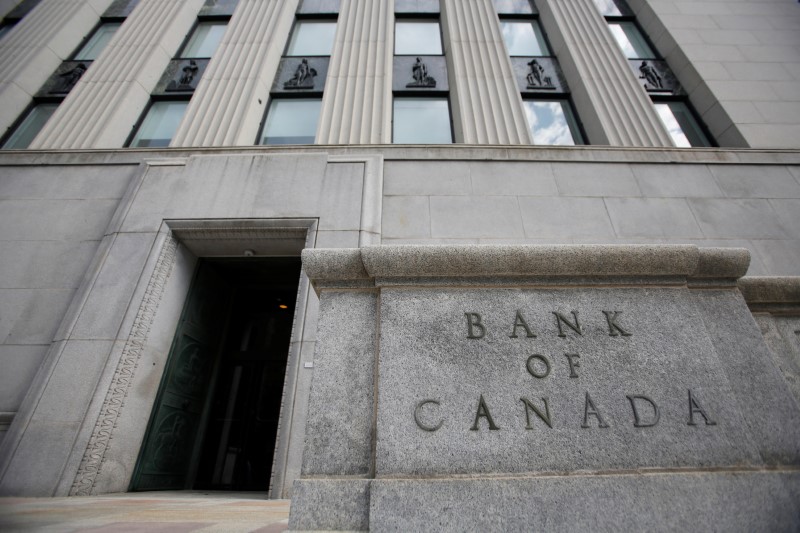 © Reuters. A sign is pictured outside the Bank of Canada building in Ottawa
© Reuters. A sign is pictured outside the Bank of Canada building in OttawaBy Leah Schnurr and Andrea Hopkins
OTTAWA (Reuters) – Uncertainty about NAFTA renegotiations is one of the reasons the Bank of Canada has kept interest rates low, because concern about U.S. trade policy is dragging down business investment, Deputy Governor Lawrence Schembri said on Wednesday.
The central bank also has “a bit more room” than previously thought to support demand without sparking excessive inflation, because it has revised up its projected growth rate of potential output, Schembri said in a speech in Ottawa.
Schembri’s comments suggested a resolution of the North American Free Trade Agreement between Canada, the United States and Mexico could clear the way for higher rates. The Bank of Canada in April held interest rates steady after hiking three times since July 2017.
Schembri said the uncertainty over NAFTA has hampered investment and exports, but domestic consumer demand has companies running close to full capacity.
“That’s part of the reason why we believe that the economy is operating close to potential, inflation is less than (or) close to our target of 2 percent, yet monetary policy is below the neutral rate, in part because we have to lean against the drag coming from the uncertainty created by NAFTA,” Schembri said in response to an audience question.
The United States is pushing for a NAFTA deal, but Canadian and Mexican officials were not due in Washington for talks before a Thursday deadline.
The bank has long blamed worries about NAFTA for sluggish business investment. Some 75 percent of Canadian exports go to the United States, and any change to the trade agreement could imperil supply chains and profitability.
While analysts expect at least one more rate hike in 2018, the bank has said it will proceed cautiously given the uncertainty about NAFTA and the record levels of debt held by Canadian households.
Adding to his dovish comment, Schembri said the bank’s upward revision in April to its projected growth rate of potential output gives policymakers “a bit more room” than previously thought to support demand without sparking excessive inflation pressures.
“The higher the projected growth rate of potential output, the faster the economy can grow without inflation rising persistently above our target,” Schembri said in the speech.
“That means that, in the near term, we have a bit more room than we thought to support demand without sparking undue inflationary pressures.”
Fusion Media or anyone involved with Fusion Media will not accept any liability for loss or damage as a result of reliance on the information including data, quotes, charts and buy/sell signals contained within this website. Please be fully informed regarding the risks and costs associated with trading the financial markets, it is one of the riskiest investment forms possible.
Source: Investing.com




























